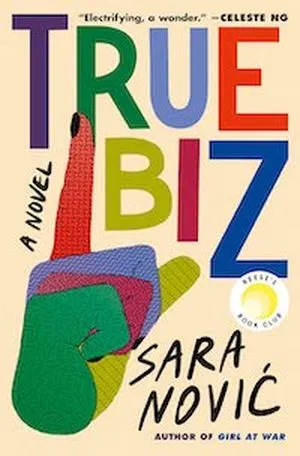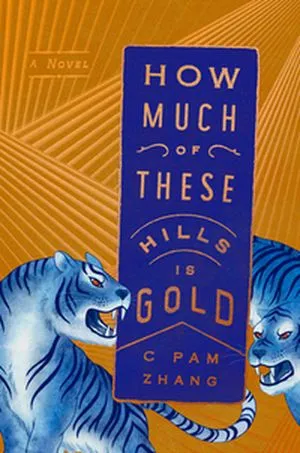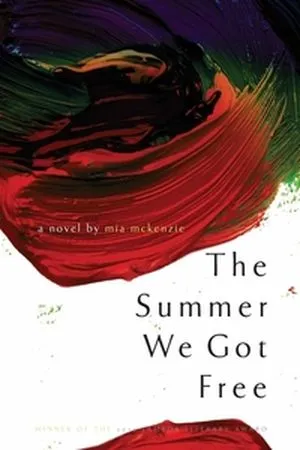
8 Unforgettable Literary Fiction Reads by Marginalized Authors
Literary fiction is a notoriously difficult genre to pin down—if we can even call it a genre. It’s more about style, quality of prose…or perhaps pretentiousness. They’re the kind of books that get nominated for literary awards, that get taught in schools, that become modern classics. Check out Annika’s essay What is Literary Fiction, Anyway? for a more in-depth discussion, but for now, let’s just say you know it when you see it.
Despite it being a difficult to define category, I still think it’s worth seeking out literary fiction. Some of the most beautifully written, thought-provoking, and memorable books out there are literary fiction. They can sometimes be harder to read, but it’s worth challenging ourselves, at least some of the time. That’s why task #8 for the 2025 Read Harder Challenge is “Read literary fiction by a BIPOC, LGBTQIA+, and/or disabled author.”
Literary fiction works tend to be the most celebrated and revered, for better or worse. They are what’s recognized for awards—including the few literary awards that come with significant cash prizes. But often, the literary fiction recommended is by the same handful of names, who also happen to be male, white, cisgender, straight, and abled. It’s worth seeking out marginalized voices not only to combat the system discrimination in the book world, but also because—in my opinion—much of the most interesting and groundbreaking literary fiction works are by marginalized authors.

Sing, Unburied, Sing by Jesmyn Ward
Winner of the National Book Award, Sing, Unburied, Sing is an incredible feat of Southern literature. Jesmyn Ward concludes her trilogy of Mississippi novels with this ghost story. Jojo, a 13-year-old boy, lives with his grandparents. But when his mom shows up to take him to pick up his father who is being released from prison, he goes on a road trip that will change his life forever. —Kendra Winchester

True Biz by Sara Nović
Set in a boarding school for Deaf students, this novel’s characters include Charlie, a new student, and February, an alumna and headmistress trying to save the school. It also contains lots of background on Deaf culture and illustrations of American Sign Language. Some of the students, like Austin, come from Deaf, signing families, while Charlie comes from a hearing family. Growing up without access to sign language was socially isolating for Charlie. Her story also shows that many Deaf people don’t want cochlear implants. In Charlie’s case, her implants are dangerous. She crews for a school production of Peter Pan and joins a diverse, rebellious group of friends. —Grace Lapointe
Content for All Access members continues below.
The Summer We Got Free by Mia McKenzie
This book feels like the moment before a summer thunderstorm. It’s about a family dealing with the fallout from a tragedy they can’t bare to talk about. We alternate between Ava’s childhood, when she was free-spirited and passionate, and her closed-off, practical adult self. Read this to think about race and racism (particularly anti-Black racism), societal norms, growing up, family secrets, and the possibility of kissing a strange woman who shows up at your doorstop. —Danika Ellis

The Gods of Tango by Carolina De Robertis
In 1913, a young Italian immigrant arrives alone in Buenos Aries, expecting to be married. When they discover their new husband has been killed, they don men’s clothing and join a group of tango musicians, where they find unexpected companionship and family. Steeped in the rhythm of tango and the vibrant messiness of immigrant communities in Buenos Aries, this is a story of self-discovery, often full of heartbreak, that is sometimes physically painful to read. But if you let it, it will lead you out into the light at the end, leaving you feeling reborn. —Laura Sackton

How Much of These Hills is Gold by C Pam Zhang
This epic historical fiction about two siblings fighting to survive during the American gold rush is a case where you can judge a book by its cover. It’s gorgeous inside and out! Lucy and Sam, children of Chinese immigrants in mid-19th century California, are orphaned by the death of their father and set off on a journey to find a place to lay his body to rest. Their journey through the hills is imperiled by dangerous creatures, aching hunger, and untrustworthy humans, bringing Lucy and Sam at times closer together and pushed further apart. It’s an emotional and transportive book steeped in Chinese mythology and gold rush era history. —Susie Dumond

The Call-Out by Cat Fitzpatrick
When was the last time you read a novel in verse about a group of trans women in Brooklyn? Probably never! This creative and deeply moving novel is a loose retelling of the Russian novel Eugene Onegin, though many of its concerns are decidedly 21st century: cancel culture, generational differences in activist movements, city life, what it means to belong to an identity-based community. It’s both a juicy, gossipy drama about friendships, fallouts, and hookups, and a nuanced look at healing, trauma, and public and private accountability. —Laura Sackton
Zeal by Morgan Jerkins
Morgan Jerkins, the bestselling author of Caul Baby, pens a modern-day love story that rights the wrongs of a star-crossed past. When Ardelia and Oliver find each other, they discover each of them has a family history full of holes and secrets. Is it possible that their love story stretches back through the generations to a newly freed man looking for the woman he loves whose family fled in the Great Migration? — Rachel Brittain

Detransition, Baby by Torrey Peters
Reese and Amy were once a power couple in the trans community, almost happy in every way. But one thing was missing: a baby. Their relationship unraveled when Amy detransitioned and returned to living as a man, Ames. But when Ames’s new girlfriend Katrina gets pregnant, he wonders if he can repair things with Reese and create a new, queer family formation. This is exactly the kind of queer lit I want to read more of: messy, honest, real, and not written for straight audience’s consumption. —Susie Dumond
What book do you recommend for this task? Let’s chat in the comments!
Check out all the previous 2025 Read Harder posts here.
The comments section is moderated according to our community guidelines. Please check them out so we can maintain a safe and supportive community of readers!


Leave a comment
Become an All Access member to add comments